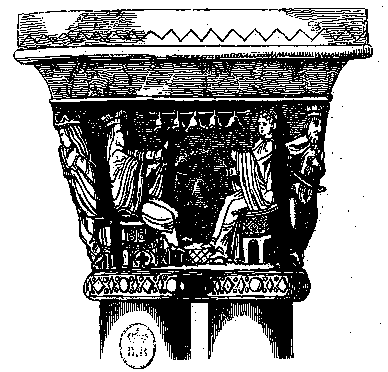0044. THE FINEST JUDGES MONEY CAN BUY AND OTHER OF JUDICIAL POLLUTION : 1 ใน 109 หนังสือ ควรอ่าน จาก
Finest Judges Money Can Buy & Other Forms of Judicial Pollution
Ashman, Charles R.
Brown Book Company
1 ใน 109 หนังสือควรอ่าน จาก นายกฯ ทักษิณ ชินวัตร

Finest Judges Money Can Buy & Other Forms of Judicial Pollution
Ashman, Charles R.
Brown Book Company | | Hardcover | 9780840213167 품절 도서 문의
ListPrice : $ 8.00
ASHMAN, CHARLES R. The Finest Judges Money Can Buy. Los Angeles, 1973.
Ashman, Charles R. The Finest Judges Money Can Buy and Other Forms of Judicial Pollution. Los Angeles: Nash Publishing, [1973]. 309 pp. Cloth very good in worn dust jacket. $15.
Offered for US$ 15.00 by: Lawbook Exchange - Book number: 36974

...... form as a capital; the other ...
เมื่อวันที่ 2 กรกฏาคม 2546 นายกรัฐมนตรี ปาฐกถาพิเศษในการสัมมนาทางวิชาการเรื่อง "แนวทางการสร้างความเสมอภาค และ ความเป็นธรรมทางกฏหมายสำหรับคนจน" ณ ห้องรพีพัฒนศักดิ์ เนติบัณฑิตยสภา มีข้อความ กล่าวถึงหนังสือกฏหมายอีกเล่มหนึ่งว่า....
....."วันนี้ เรามีระบบการชี้ตัวพยาน คือ ถูกหมด แต่ว่าถ้ากฏหมายผิด สิ่งที่เราจะทำถูก มันก็ออกมาผิด เพราะเริ่มต้นผิด เราจะทำอย่างไร ? การวิจัย การทำโฟกัสกรุ๊ปของสำนักงานคณะกรรมการวิจัยแห่งชาติ จะต้องเกิดขึ้นในขั้นตอนต่างๆ ขั้นตอนแรกที่เราต้องการจะย้ำ คือ เรื่องกฏหมาย ตัวกฏหมายที่เราพูกันว่า ตัวบทกฏหมายมันเป็นอย่างไร ขั้นที่สอง คือ กระบวนการพิจารณาเป็นอย่างไร แต่ละขั้นตอนนั้น แต่ขั้นตอนแรกสำคัญที่สุด ขั้นตอนต่อไป คือ กระบวนการพิจารณา (Procedure) และ แน่นอนครับ ขั้นตอนที่สำคัญและวันนี้ ก็ยังเป็นปัญหาอยู่ คือ ระบบยุติธรรม
" ระบบของการอำนวยความยุติธรรมยังมีปัญหาอยู่ในทุกระดับ แน่นอนครับ สังคมไทยเรา โดยเฉพาะคอรัปชั่นยังมีอยู่มากในทุกระบบ ยิ่งมีคอรัปชั่นเท่าไร คนจนยิ่งเสียเปรียบในกระบวนยุติธรรมมากเท่านั้น แม้กระทั่งในอเมริกา สมัยที่ผมไปเรียน มีหนังสือออกมาเล่มหนึ่ง ชื่อ The Finest Judges Money Can Buy
อเมริกาเองยังมีปัญหาตัวนี้ เพราะฉะนั้น เรื่องคอรัปชั่นก็เป็นจุดหนึ่ง ผมกำลังเรียกร้องว่าระบบ หรือ กฏหมายทุกอย่างนี้ ถึงแม้ว่าเราจะเป็น Adversary System เราจะมีการ Contest ทางด้านหลักฐานระหว่างผู้กล่าวหา กับ ผู้ถูกกล่าวหา ระหว่างโจทย์กับจำเลยก็ตาม เทคนิคของกฏหมาย เทคนิคของการต่อสู้กันทางกฏหมาย เป็นสิ่งที่ดีครับ แต่ นั่นคือ สิ่งที่ทำให้คนจนเสียเปรียบอีกเช่นกัน เพราะฉะนั้น ระบบจะต้องเป็นลักษณะของทุกอย่าง ต้องมีความโปร่งใสสูง ไม่ต้องมีความซับซ้อนมากเท่าไร นั่นคือสิ่งที่ดี ทุกอย่างมี Accurate ชัดเจน"
หนังสือเล่มนี้ ได้ถูกจัดพิมพ์ตั้งแต่ 30 ปีที่แล้ว โดยสำนักพิมพ์ Nash เป็นหนังสือที่ผู้เขียน Charles R. Ashman ได้รวบรวมหลักฐาน 74 คดี ที่ผู้พิพากษารับสินบนจากพวกพ้อง หรือ ผู้เอื้อประโยชน์ แล้วทำให้การพิจารณาตัดสินคดีเปลี่ยนไปจากที่ควรจะเป็น
| Create Date : 07 มีนาคม 2551 |
| Last Update : 8 มีนาคม 2551 5:33:57 น. |
|
8 comments
|
| Counter : 1541 Pageviews. |
 |
|
|
โดย: Finest Judges Money Can Buy & Other Forms of Judicial Pollution (moonfleet  ) วันที่: 8 มีนาคม 2551 เวลา:5:18:18 น. ) วันที่: 8 มีนาคม 2551 เวลา:5:18:18 น. |
|
|
|
โดย: The Finest Judges Money Can Buy (moonfleet  ) วันที่: 8 มีนาคม 2551 เวลา:5:20:11 น. ) วันที่: 8 มีนาคม 2551 เวลา:5:20:11 น. |
|
|
|
โดย: "We got judges on the payroll that can straighten it out one, two, three." (moonfleet  ) วันที่: 8 มีนาคม 2551 เวลา:5:21:12 น. ) วันที่: 8 มีนาคม 2551 เวลา:5:21:12 น. |
|
|
|
โดย: Exerpted from: Charles R. Ashmen, The Finest Judges Money Can Buy, Nash Publishing, Los Angeles, 1973. (moonfleet  ) วันที่: 8 มีนาคม 2551 เวลา:5:22:42 น. ) วันที่: 8 มีนาคม 2551 เวลา:5:22:42 น. |
|
|
|
โดย: Help Balance the Scales of Justice! (moonfleet  ) วันที่: 8 มีนาคม 2551 เวลา:5:24:33 น. ) วันที่: 8 มีนาคม 2551 เวลา:5:24:33 น. |
|
|
|
โดย: Adapted from: Charles R. Ashman, The Finest Judges Money Can Buy, Nash Publishing, Los Angeles, 1973. (moonfleet  ) วันที่: 8 มีนาคม 2551 เวลา:5:49:13 น. ) วันที่: 8 มีนาคม 2551 เวลา:5:49:13 น. |
|
|
|
โดย: Ashman, Charles. The CIA-Mafia Link. New York (moonfleet  ) วันที่: 8 มีนาคม 2551 เวลา:5:51:15 น. ) วันที่: 8 มีนาคม 2551 เวลา:5:51:15 น. |
|
|
|
โดย: The Finest Judges Money Can Buy, And Other Forms of Judicial Pollution (moonfleet  ) วันที่: 8 มีนาคม 2551 เวลา:5:55:20 น. ) วันที่: 8 มีนาคม 2551 เวลา:5:55:20 น. |
|
|
|
|
|
Ashman, Charles R.
Brown Book Company | | Hardcover | 9780840213167 품절 도서 문의
ListPrice : $ 8.00
ASHMAN, CHARLES R. The Finest Judges Money Can Buy. Los Angeles, 1973.
Ashman, Charles R. The Finest Judges Money Can Buy and Other Forms of Judicial Pollution. Los Angeles: Nash Publishing, [1973]. 309 pp. Cloth very good in worn dust jacket. $15.
Offered for US$ 15.00 by: Lawbook Exchange - Book number: 36974